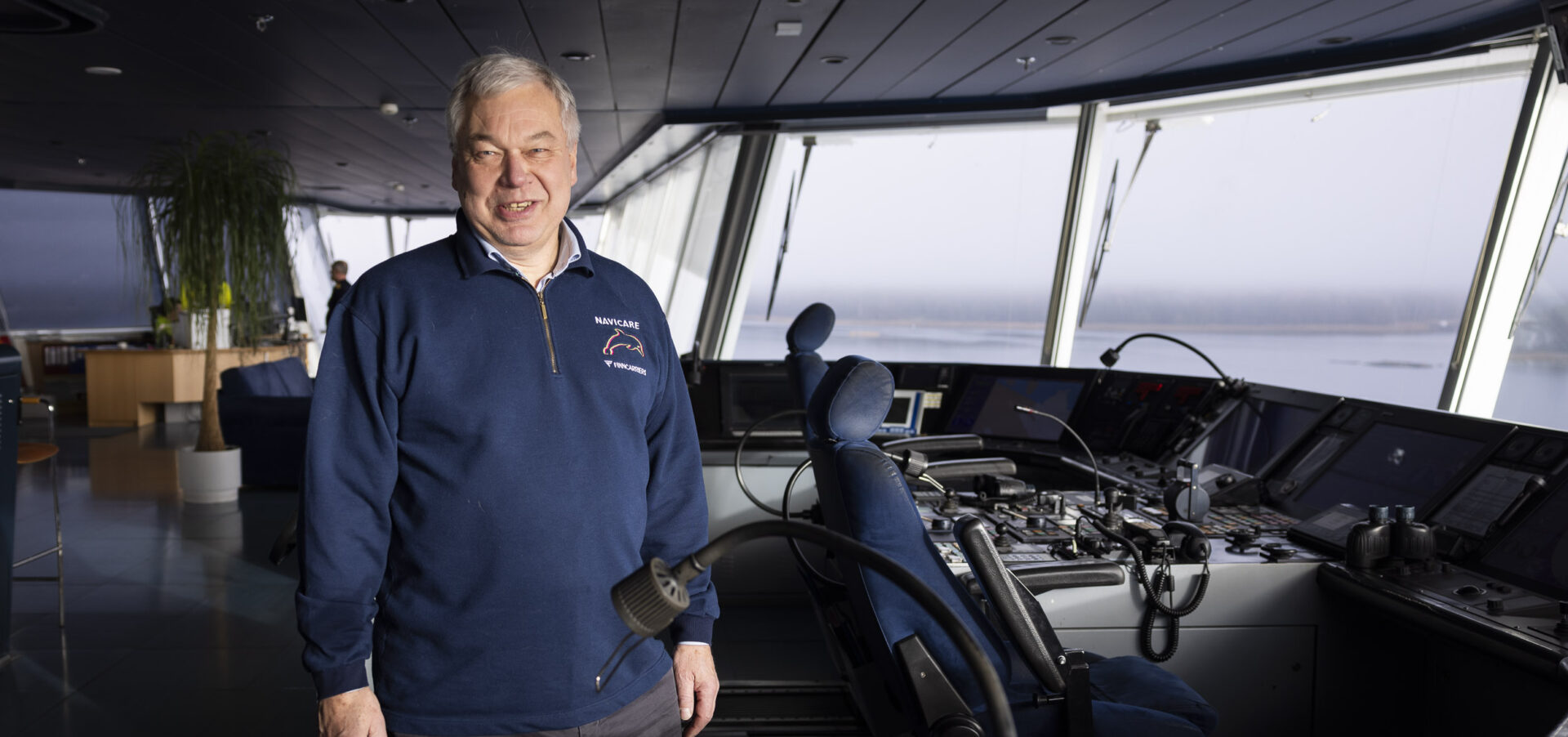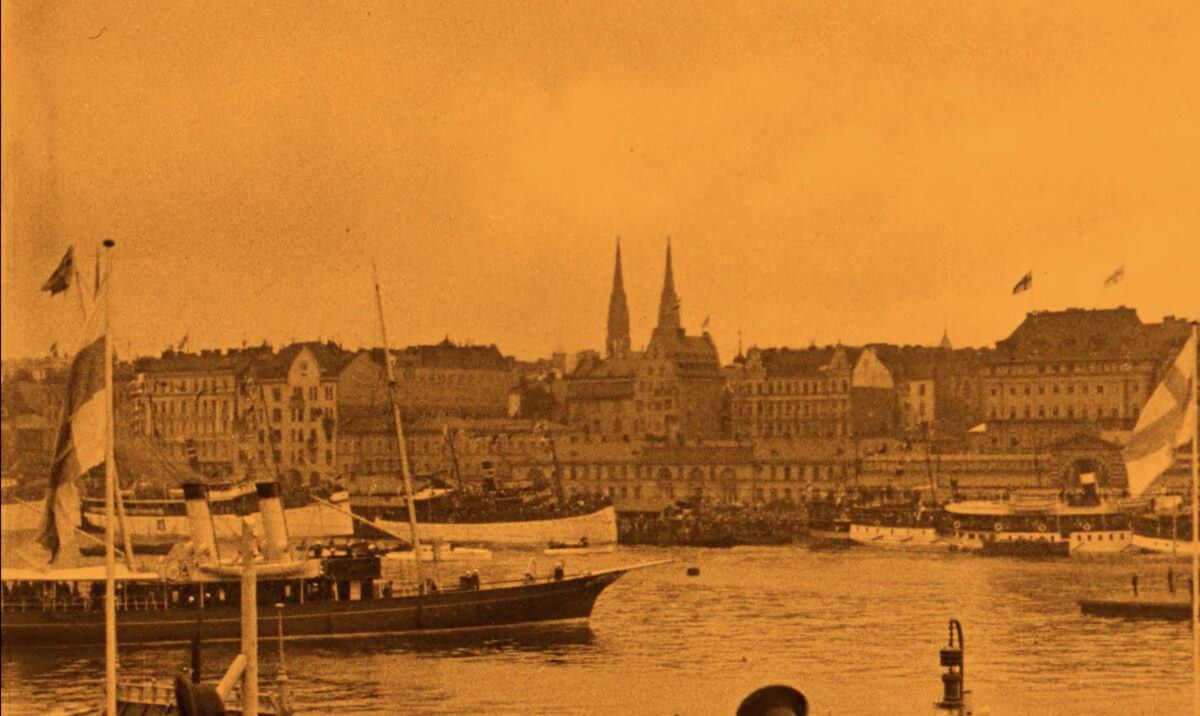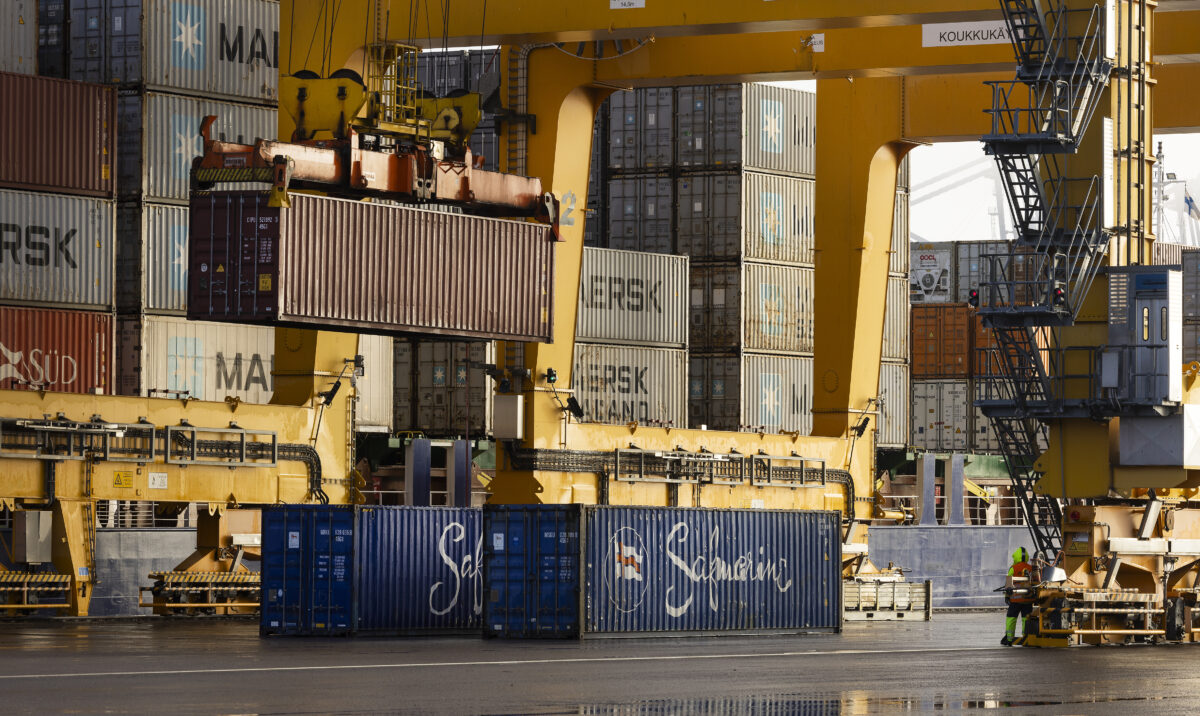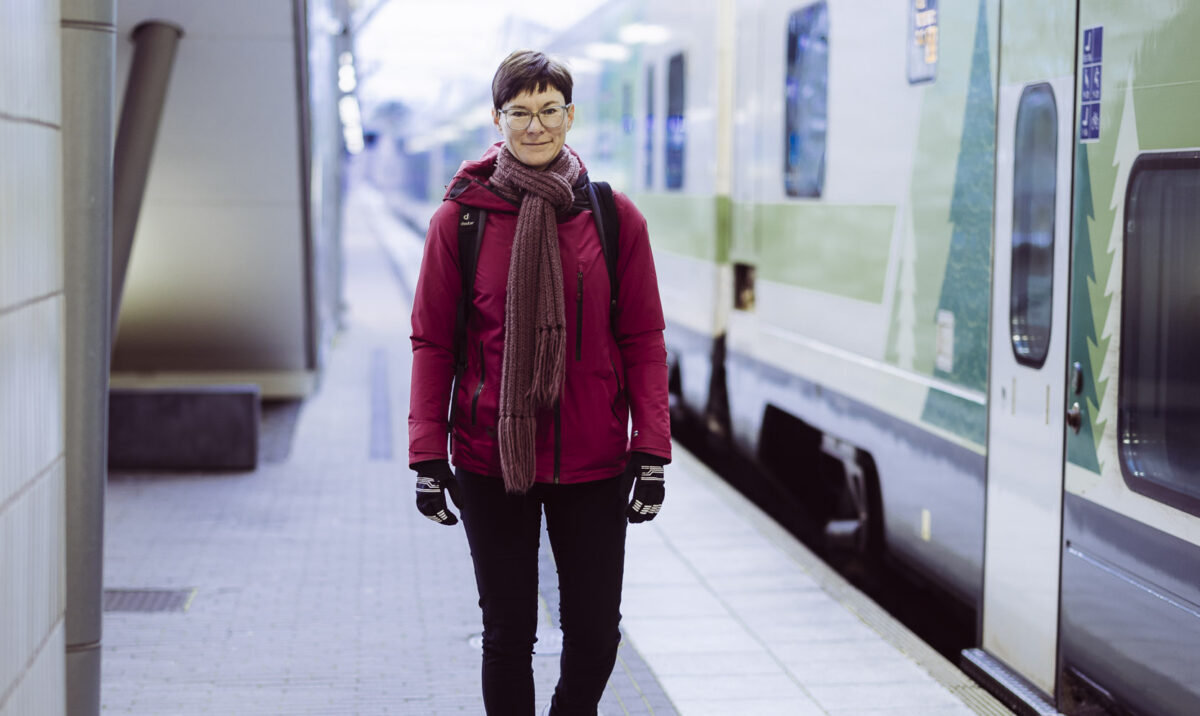
“The maritime sector requires profound expertise”
Staffan Herlin, EVP of Marketing and Sales at Finnlines, has had a long career of no less than 40 years working for the same employer.
Staffan Herlin launched his maritime career in 1979 with a summer job as a clearance agent at Effoa, aka Suomen Höyrylaiva Osakeyhtiö.
“I was into competitive sailing, and the maritime sector seemed fascinating and close to my heart. The sea has always been part of my life in some way, so I thought my profession should also be related to it.”
Herlin also considered a career as a ship captain.
“Shift systems were different back then and, depending on the traffic, I might have been away from home for six months at a time. That would have been quite numbing. Being part of an onboard community is also quite different to life at the office.”
Over the years, he has only once encountered a situation that made him think about changing jobs.
“But I’ve never felt like I’ve seen all there is to see. It’s mainly been a question of whether I’m heading in the right direction and what prospects there are for the future. It’s good to examine your job description from a distance. And if my current job were vacant, I’d apply for it,” he says, laughing.
“The team has been a big plus at our company. Many of those who’ve left Finnlines have said that while they don’t necessarily miss their job, they do miss the people.”
Work in the maritime sector is lively and informal
Shipping was vital to Finland when Herlin was starting his career – and it still is.
“There was a desperate shortage of ships, as industrial exports grew rapidly after the war. In practice, capacity was a bottleneck for exports until the energy crisis of the 1970s. Shipping was so critical and held such a strong position that it was represented in all matters related to foreign trade.”
The Baltic Sea is our home sea, so it will always be close to my heart.
The Maritime Counsellors sat in their chambers and made agreements with the largest trading firms and industrial plants on how Finnish merchant shipping would be handled. In Herlin’s opinion, the status of shipping has not diminished since then – quite the contrary – although its role has changed. “Our role has become more routine. As a logistics operator, we’re a link in the foreign trade supply chain, albeit a critical one. This is a very capital-intensive sector, so owners must have broad shoulders and a long-term view on investments. In essence, it’s pretty straightforward: cargo in, hatch closed and invoices out. This isn’t rocket science. But the challenge is to steer a capital-intensive business through fluctuating economic cycles and engage in long-term planning, as vessels have an active service life of 20–30 years.”
Ships are visible and a thing to be proud of
Large ships are a spectacular sight both in port and at sea.
“When my children were still small and we were out in our boat, they used to say, ‘There goes Daddy’s ship.’ That definitely warmed a father’s heart.”
“Ships are part of the charm of this business – the fact that we have impressive tools to be proud of.”
However, Finnlines hasn’t enjoyed the same level of general recognition as major passenger operators such as Tallink and Viking Line. Yet that may soon change with the new ferries Finnsirius and Finncanopus departing from Naantali. However, cargo traffic still accounts for about 90 per cent of Finnlines’ net sales. “About 10–15 years ago, when I went to speak at universities and colleges, not many students knew about Finnlines, and especially in areas outside the capital city region. Shipping was a very distant and vague industry, with an old fashioned and conservative image.”
Success requires profound expertise
Not much has happened in terms of cargo handling since the advent of roro and container ships. Vessels have, of course, been increasing in size and processes have also become more efficient. The maritime sector moves massive volumes, and the smallest of mistakes can end up costing you a lot. Success requires profound expertise and an understanding of how to work with this kind of capital.
“Young people are interested in the maritime sector, but company spirit will be the decisive factor. And are there people like me who keep harping on about how things used to be better? That won’t really motivate young people.”
Herlin says that business must be done smartly and profitably, and above all with a customer-oriented approach.
“This is about long-term cooperation with established customers.”
Herlin says that significant global events, such as wars and pandemics, always impact Finnlines as well.
“The financial crisis is the traumatic event that has stuck in my mind. At that time, I was already in a position to understood the risk when foreign trade contracts by almost a third in a few weeks. And because it was a global crisis, ships couldn’t be chartered out. There was an apocalyptic atmosphere at the company back then, and likewise in Finland’s foreign trade and economic policy. We needed a shoulder to lean on and luckily our owner, Grimaldi, had one to offer.”
Finnlines holds a significant position in Finland
Finnlines plays a critical role in Finland’s security of supply. The company participates in key large-scale events and cooperates with the authorities.
“If you’re looking for meaningfulness and more than just a salary, this work has definite – and major – importance for the national economy.”
An increasingly stricter environmental protection programme is underway in shipping. Activities are being steered by the International Maritime Organisation (IMO), whose emission limits must be ratified at a number of administrative levels.
“Environmental issues have progressed fairly slowly in shipping, maybe because this mode of transport represents only a very small proportion of total emissions. However, the restrictions will come in leaps and bounds that require considerable investments and an understanding of future technology and fuels. The winners will be strong companies with enough resources to adapt.”
This job is clearly important for the national economy.
EU ETS, that is, the EU Emissions Trading System, will come into effect on 1 January 2024. But it will not treat the land and sea equally. Although the ETS will not come ashore until 2027, it is already sinking its teeth into shipping and posing challenges for its relative competitiveness. “It’s nice to be able to retire from the stagnation of an economic downturn, yet at the same time, the green transition is causing a pleasant buzz and the technological solutions in next-generation ships are fascinating.”
Helsinki is Finnlines’ home port
Herlin thinks that the Port of Helsinki has succeeded in its task – even in terms of its image.
“Ville Haapasaari and I are very well acquainted and our goals are in principle the same: we have the same outlook. The Port of Helsinki has a very interactive way of working.”
And that’s how it should be, as Helsinki is in practice Finnlines’ home port. The Port of Helsinki also has the advantage of a consumer metropolis of one million inhabitants.
“Vuosaari serves as an import and export port for the whole of Finland. Its development trajectory has included not only unitised transit cargo, but also a considerable volume of industrial cargo in recent years.”
Retirement ahead
Staffan Herlin will retire from Finnlines at the beginning of January.
As a family man, he will be happy to have more time to spend with his three children and two grandchildren. He also intends to go sailing and work on his old Mercedes hobby car.
“We have a detached house with a big backyard that will keep me occupied. A complete renovation of our old summer house is also just around the corner, so there’s no rest in sight.”
He will also remain involved in board work.
“However, I’ve no longer been taking notes during recent cargo negotiations – the younger ones can take care of that now,” he says, laughing.
“Another good thing about retiring is that you can’t get sacked any more. It’s quite liberating.”
Who?
- Staffan Herlin was born in 1958, and is an economist and EVP of Marketing and Sales at Finnlines.
- He has held numerous positions of trust at cooperation and advocacy organisations in the shipping industry.
- His hobbies include sailing, spending time with his children and grandchildren, a Mercedes hobby car, renovating his summer house, and his home’s large backyard.





